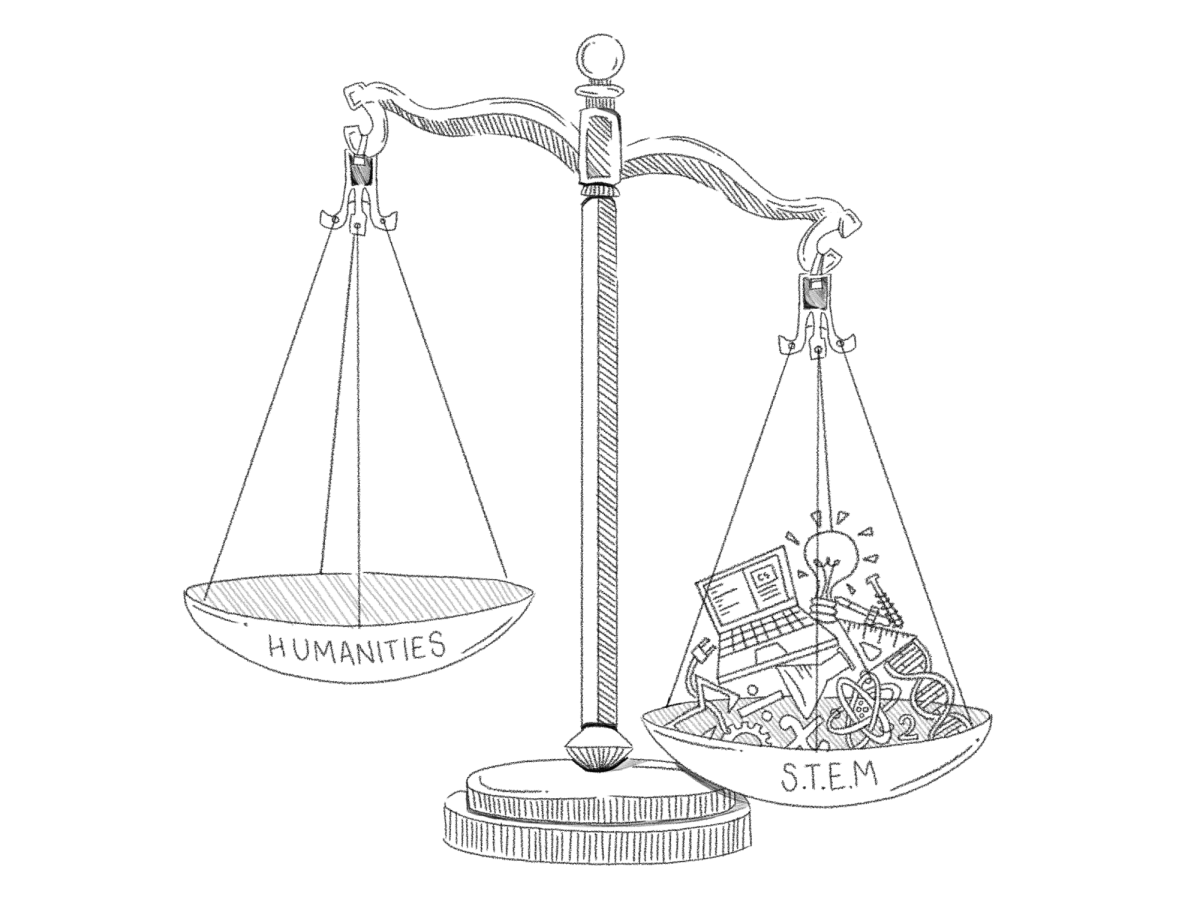Are we told “yes” too often? Guest writer Zack Hurwitz explores the consequences of too much encouragement and goads us to examine the power of “no.” Staff photo by Lauren Yang.
By Zack Hurwitz
I’m not really sure why I wanted to write this article. English has never been my thing, and I struggle at clearly communicating the thoughts in my head. Maybe I’ve realized that my time at Menlo is starting to run out and I want to do something that will impact my school in some capacity. That’s what I thought the reason was at first, but it’s starting to seem less and less so.
I’ve been stuck in a rut the past couple months. After doing pretty well with grades first semester despite what was promised to me to be the hardest time of my life (it wasn’t), I relaxed my efforts in school and realized I should enjoy junior year instead of freaking out about it. That’s when I started to decline. I wanted to do my homework less, wanted to study for tests less, didn’t try as hard to go to bed early, didn’t try as hard to see my friends. I just sat around at my desk watching YouTube all the time.
My life became a game of seeing how much homework I could get away with not doing, and looking back, it wasn’t a good place to be. I wasn’t sad, but I wasn’t as productive, motivated, or happy as I could have been. Wake up, school, sports, come home, screw around for a couple hours, minimal work, sleep for under seven hours, repeat. I was just going through life, not caring about the work I did.
Then I discovered Casey Neistat. You probably haven’t heard of him; most people don’t seem to know who he is.
Casey is a YouTuber, a filmmaker, a startup founder, and just an overall awesome guy. He’s been pretty inspirational to me recently in the way I view life. One day I was watching one of his videos, and he said something that I connected with: the best way to get him to do something is to tell him he couldn’t do it.
That’s when I realized what had happened, how I had fallen into the rut. My whole life, people have been telling me how lucky and special I am and how I can do anything I want. But people telling me I can, I can, I can, has never led me to want to do, do, do.
Menlo focuses on creating an encouraging environment where people feel they have the resources and the support to try something new and push themselves to their limits. The problem is, for many of us, it’s become impossible to find the motivation to do so.
Right now, students at Menlo are always told yes. We’re told we can go to whatever college we want, get whatever job we want, live whatever life we want with the opportunities we’ve been given. To me, life sounds pretty easy—too easy.
To make this possible, Menlo has an exceptionally challenging curriculum: hard work now will translate into prosperity later in life. A lot has been done to address the stress that Menlo students experience (good job with the new schedule, Mr. Schafer), which speaks to the challenging quantity of work students face constantly. Some could argue this teaches students hard work through learning to manage time and being efficient.
But what this actually teaches is how to get stuff done, NOT how to be your best—being faster does not mean being smarter. It takes time to obtain a deeper understanding of the subject material, regardless of how much work you put in outside of class. It isn’t helpful to assign an hour of homework nightly if it only means moving on to a different topic sooner.
So maybe saying strictly “no” isn’t the right approach. That would just mold all the students to squeeze inside a tight little box and limit their academic potential. But it’s not enough for a teacher to nudge their kids to find a more engaging project. The kids have to be forced to push themselves.
It’s important to tell our students “no” so they’ll have the motivation to achieve beyond what’s possible, but also to prepare them for real life. There won’t always be an amazing group of people who believe in your abilities and your success. You will be told “no” in life. Are you prepared to handle it?








